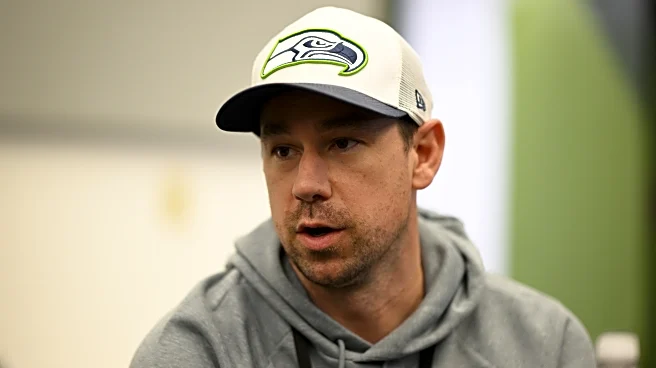What's Happening?
Pharmaceutical companies are increasingly relying on technology to transform traditional tracking studies, which are essential for monitoring brand health and informing strategic decisions. A recent webinar highlighted how new technologies are enabling real-time data collection and analysis, offering faster and more flexible insights. Experts discussed the role of AI in sentiment analysis and the challenges of traditional methods, which often lack agility. The transformation is driven by the need for quality insights in a rapidly changing market landscape, allowing companies to establish key performance indicators more effectively. This shift is reshaping the way pharmaceutical companies approach market research, with a focus on speed and adaptability.
Why It's Important?
The technological transformation of tracking studies in the pharmaceutical industry is significant as it enhances the ability to make informed decisions quickly. Real-time insights allow companies to respond to market changes and consumer needs more effectively, improving competitiveness and innovation. The integration of AI and advanced analytics provides deeper understanding of market dynamics, enabling strategic planning and resource allocation. This evolution also impacts compliance and ethical standards, as companies must navigate new data management practices. Overall, the shift towards technology-driven tracking studies supports the industry's growth and adaptation to modern challenges, benefiting stakeholders across the healthcare sector.
What's Next?
As technology continues to advance, pharmaceutical companies are likely to further integrate AI and data analytics into their tracking studies. This may involve developing new methodologies for real-time sentiment analysis and predictive modeling. Companies could also explore partnerships with tech firms to enhance their research capabilities and streamline operations. The focus on agility and innovation may lead to new industry standards and best practices, influencing how market research is conducted. Additionally, the evolving landscape may prompt regulatory bodies to update guidelines and compliance requirements, ensuring ethical use of technology in healthcare research.










